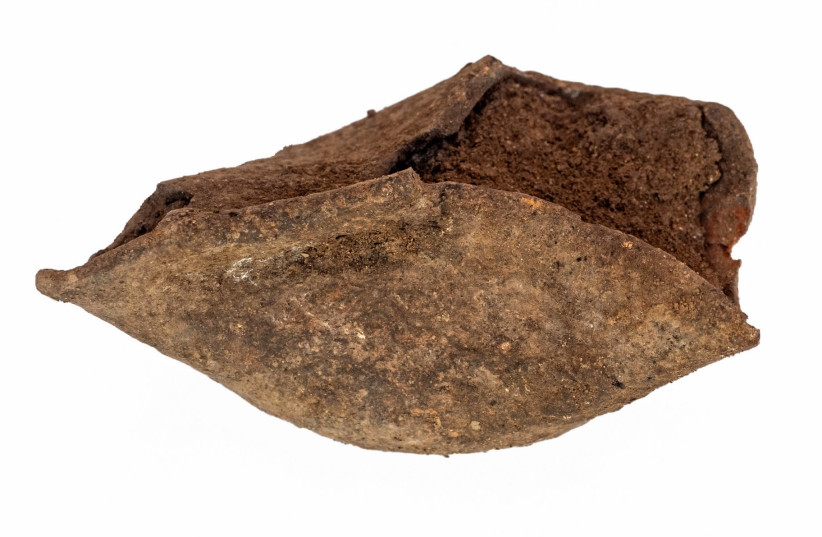Around 2,100 years ago, during the Hellenistic Hasmonean period, the inhabitants of an agricultural farmstead at what is today Horbat Assad near Nahal Arabel in the eastern Galilee had to leave suddenly, perhaps because of impending danger such as a military attack, with no time to take their possessions.
In a recent excavation carried out by the Israel Antiquities Authority prior to a project transferring desalinated water to the Kinneret (Sea of Galilee) being carried out by Mekorot, Israel’s national water company, their belongings were uncovered as if frozen in time.
The dig revealed tens of loom weights used for weaving garments, large ceramic storage vessels, and iron agricultural implements, including various picks and scythes. The coins retrieved date the farmstead to the second half of the second century BCE, according to the IAA.
In addition, the foundations of buildings, pottery vessels and other finds dating to the Iron Age, (10th-9th centuries BCE) were uncovered.
“We were very lucky to discover a time-capsule… in which the finds remained where they were left by the occupants of the site, and it seems that they left in haste in face of an impending danger, possibly the threat of a military attack,” said Dr. Amani Abu-Hamid, director of the excavation on behalf of the Israel Antiquities Authority, noting that weaving loom weights were still on the shelf, and the storage jars were intact.

“We know from the historical sources that in this period, the Judean Hasmonean Kingdom expanded into the Galilee, and it is possible that the farmstead was abandoned in the wake of these events, she said. “More research is required to determine the identity of the inhabitants of the site.”
The finds shed light on little-known activity in this area in the Hasmonean Period, the authority said.
Calling the findings “interesting and significant,” IAA general director Eli Eskosido said the authority and Mekorot are cooperating to preserve the farmstead, at the site itself or somewhere nearby.
The excavation was financed with the assistance of Mekorot, in order to promote the NIS 910 million Northern Carrier project pursuant to a government resolution. Its objective is to carry desalinated water to the basin in order to maintain the water level and anchor a continuous water supply for households, agriculture and neighboring countries.
